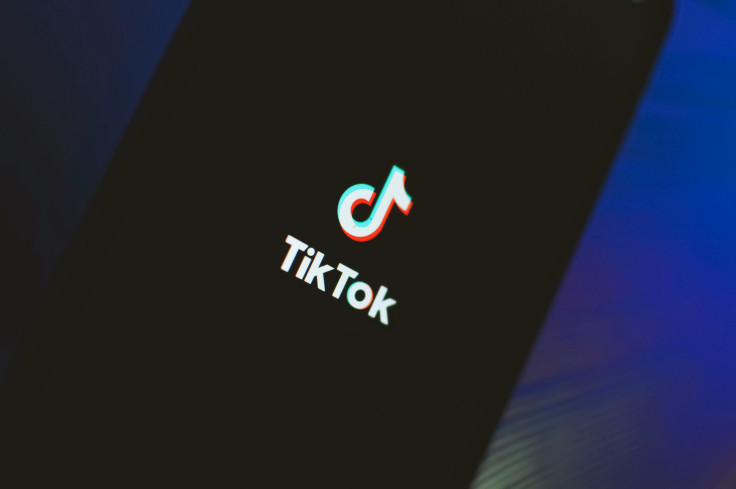Viral Chinese Streamer Makes £10 Million A Week By Showing Clothes And Other Items For Only Three Seconds
Her fast-paced style generates around £10 million in weekly sales, mostly from low-cost daily goods

In China's booming livestream shopping industry, one presenter has gained international attention for a strikingly minimalist approach. Zheng Xiang Xiang, a host on Douyin (China's equivalent of TikTok), has built a following by wearing products to the camera for just three seconds before moving on.
Despite the brief exposure, Zheng reportedly generates more than 100 million yuan in weekly sales, the equivalent of around £10 million. Her approach has sparked debate about how digital consumer behaviour is evolving, and whether regulators can keep up with the speed of this new retail format.
A Three-Second Sales Format
Zheng's livestreams follow a simple formula. An assistant hands her a boxed product, often in distinctive orange packaging. She raises it to the camera, announces the price and sets it aside. Within three seconds, the next item appears.
What's more entertaining is when she sells clothes - Zheng would wear the dress, pose for three seconds, and then takes it off right in front of the camera.
According to figures cited by CNA Lifestyle, this method helped Zheng sell about 10 million items in a single week. Most products are inexpensive daily-use goods priced at less than 10 yuan, or roughly £1. By keeping prices low and turnover high, she maximises sales volume, even if each viewer only makes a handful of purchases.
Why It Works
Analysts suggest Zheng's success reflects both shorter attention spans and the psychology of impulse buying. In a crowded digital marketplace, her stripped-down style avoids lengthy explanations and keeps viewers engaged through speed and novelty.
One online commentator described the effect as 'hypnotic', arguing that the rapid pace of the broadcasts can become the attraction in itself, with the products secondary to the spectacle. With little time to deliberate, viewers may be more inclined to make quick decisions.
Regulatory Response
The fast growth of livestream shopping has already prompted tighter oversight in China. In October 2023, Douyin introduced new requirements for hosts to provide meaningful product information, with non-compliance risking fines or account suspension, according to Tech Times.
Consumer advocates argue that formats like Zheng's test the boundaries of these rules. They warn that while impressive in scale, such high-speed selling raises questions about transparency and whether buyers are making fully informed choices.
Chinese live streamer who spends only 3 seconds promoting each product made $18.7m in 7 days🤯pic.twitter.com/KpPSuhOivc
— Cats & Dogs Universe (@CatsandDogsmem) August 26, 2025
Bro. That’s not 3 secs. It’s barely a half second
— Bueller (@moonpie_Buel) August 27, 2025
Comment
by u/yo-jin from discussion
in interestingasfuck
The Livestream Marketplace
China is widely seen as the global leader in livestream commerce. Platforms such as Douyin, Taobao and Kuaishou attract hundreds of millions of viewers who watch and shop in real time. The market generates billions of pounds annually and continues to expand rapidly, according to industry estimates.
Zheng's success demonstrates the range of strategies now being used within this marketplace. While some livestreams resemble full fashion shows or home-shopping demonstrations, others, like Zheng's, strip the process down to its most basic form.
Chinese social media trend: woman modeling clothes for buyers in real-time pic.twitter.com/0GtwXXwUix
— The Immortal (@TheImmortal007) August 26, 2025
This is so cool. She looks great in everything!
— Abby (@NoCRTinSchools) August 27, 2025
She is so skinny bruh. First eat something.
— InsightCrow (@InsightCrow) August 26, 2025
What It Means for Online Shopping
Although Zheng's reported £10 million weekly sales are extraordinary, her success signals more than the rise of one influencer. It illustrates how e-commerce is evolving to prize immediacy as much as detail or brand-building. For international observers, including those in the UK where livestream shopping is still in its early stages, Zheng's example offers a glimpse of how online retail may develop.
For regulators, platforms and consumers, the trend raises questions about the balance between efficiency and protection. For retailers and marketers, it underscores the importance of experimenting with new ways to capture attention in an increasingly saturated digital economy.
© Copyright IBTimes 2025. All rights reserved.





















